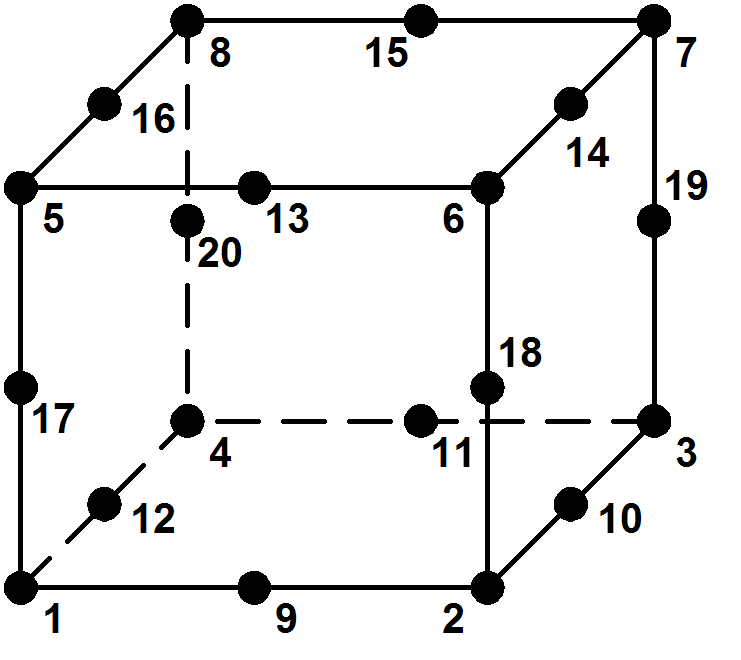Twenty_Eight_Node_BrickUP is a 20-node hexahedral isoparametric element. The eight corner nodes have 4 degrees-of-freedom (DOF) each: DOFs 1 to 3 for solid displacement (u) and DOF 4 for fluid pressure (p). The other nodes have 3 DOFs each for solid displacement. This element is implemented for simulating dynamic response of solid-fluid fully coupled material, based on Biot's theory of porous medium. Please visit http://cyclic.ucsd.edu/opensees for examples.
OUTPUT INTERFACE:
Pore pressure can be recorded at an element node using OpenSees Node Recorder:
recorder Node <-file $fileName> <-time> <-node ($nod1 $nod2 …)> -dof 3 vel
See OpenSees command manual (McKenna and Fenves 2001) for nodal displacement, velocity, or acceleration recorders.
The valid queries to a Twenty_Eight_Node_BrickUP element when creating an ElementRecorder are 'force', 'stiffness', or 'material matNum matArg1 matArg2 ...', where matNum represents the material object at the corresponding integration point.
element 20_8_BrickUP $eleTag $Node1 … $Node20 $matTag $bulk $fmass $PermX $PermY $PermZ <$bX=0 $bY=0 $bZ=0>

$eleTag |
A positive integer uniquely identifying the element among all elements |
$Node1,… $Node20 |
20 element node (previously defined) numbers (see figure above for order of numbering). |
$matTag |
Tag of an NDMaterial object (previously defined) of which the element is composed |
$bulk |
Combined undrained bulk modulus Bc relating changes in pore pressure and volumetric strain, may be approximated by:
where Bf is the bulk modulus of fluid phase (2.2x106 kPa (or 3.191x105 psi) for water), and n the initial porosity. |
$fmass |
Fluid mass density |
$permX, $permY, $permZ |
Permeability coefficients in x, y, and z directions respectively. |
$bX, $bY, $bZ |
Optional gravity acceleration components in x, y, and z directions directions respectively (defaults are 0.0) |